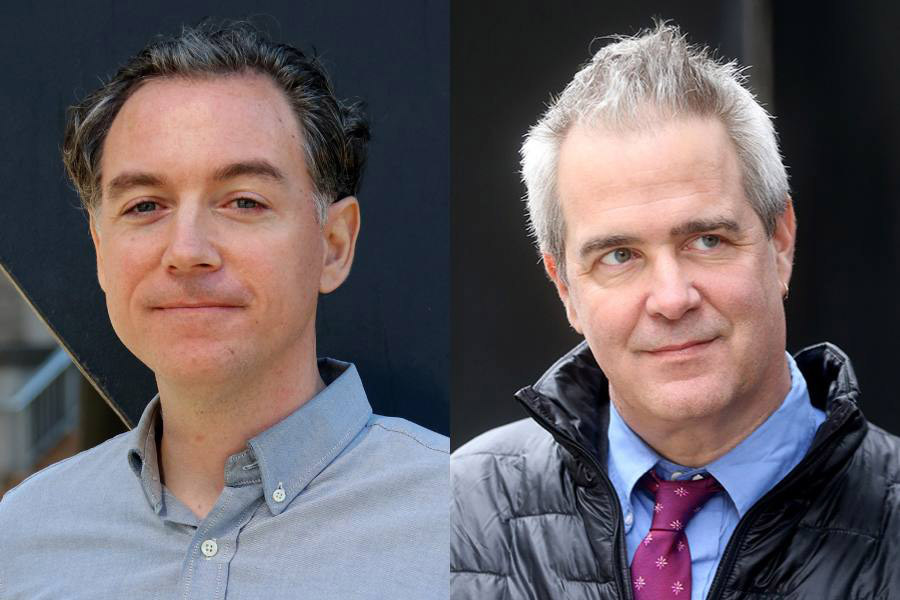
Two projects — the Global Mediations Lab led by Paul Roquet and the MIT Swahili Studies Initiative led by Per Urlaub — have won Humanities Awards from the MIT School of Humanities, Arts, and Social Sciences.
The pilot program, launched in fall 2023, aims to support humanities-focused, collaborative projects that can have a broad impact within SHASS or MIT, or have a substantial impact on undergraduate education. Each winning project receives up to $100,000 in funding.
Paul Roquet: Investigating media and information impacts
Paul Roquet is the project lead for the Global Mediations Lab, which will enable a globe-spanning study of media texts, industries, and infrastructure.
These studies, Roquet asserts, will reach beyond what he describes as “the usual focus on anglophone North America and Europe” to “map the global media landscape in its moments of contestation and transformation.”
“The big, difficult question here is how to enable a more fully global understanding of media technologies — how these tools are used for good and ill, in ways both predictable and unforeseen,” he says. This work, he believes, can provide practitioners with context regarding the history and values feeding the exclusion of other ideas and perspectives. “We seek to understand how the spread of media is itself mediated by culture, place, politics, and history,” Roquet states.
Roquet will work alongside co-principal investigator Paloma Duong, associate professor of Latin American studies in MIT Comparative Media Studies/Writing (CMS/W), and principal investigator Ian Condry, professor of Japanese culture and media studies, CMS/W, and MIT Anthropology. They anticipate an integrated, diverse, and inclusive slate of events, conferences, and other efforts.
“I think it would also be great to experiment with other formats that take seriously our own media milieu, or that allow for more participatory collaborations and more process-oriented (versus outcome-oriented) forms of research and scholarship,” Duong says.
The team wants to develop, deliver, and maintain an expansive suite of operations that invites participation from across MIT and the world. Faculty, postdocs, graduate students, and MIT Undergraduate Research Opportunities Program participants can benefit.
Roquet believes the Global Mediations Lab can serve as a hub for mapping how media practices transform as they spread around the world, and the importance of this understanding for work at MIT and among the broader community. “I want the Global Mediations Lab to be a venue for experimenting with how to bring global media insights more directly to bear on the understanding of media and technology,” Roquet says.
Per Urlaub: Reexamining language studies and curricula
Per (pronounced “pear”) Urlaub, project lead of the MIT Swahili Studies Initiative, envisions a robust program scheduled during MIT’s annual Independent Activities Period. Urlaub and his colleagues want to offer students, colleagues, and staff the opportunity to study Swahili and associated cultures over the next five years throughout the academic year through co-curricular events.
“There is an undeniable gap in MIT’s language curriculum — and this gap negatively impacts the ability of MIT undergraduate students to consider the perspectives of the African continent in their important work,” says Urlaub, who heads MIT Global Languages.
Urlaub has enlisted the help of several colleagues from across multiple investigative areas at MIT to help plan and launch the Swahili studies program. They include:
Urlaub selected Swahili for further study because “it’s one of the largest African languages, and arguably the language that has currently the most significant momentum in terms of growth and impact.”
Swahili, Urlaub notes, has been spoken primarily in Tanzania, Kenya, and Mozambique, but the total number of Swahili speakers, be they native or second-language speakers, is estimated to be around 200 million.
“In recent decades, the language has developed into a lingua franca across Eastern Africa, competing successfully for this status with English,” Urlaub continues.
Swahili’s growing influence is evident in its ubiquity across a substantial swath of the African continent, widely used in the African Great Lakes region, East and Southern Africa, some parts of the Democratic Republic of the Congo, Malawi, Mozambique, the southern tip of Somalia, and Zambia.
Urlaub highlights the value of language education at MIT while also acknowledging what he describes as “the enduring impact of colonialism on language and cultural studies.”
“We believe we owe the MIT community opportunities to broaden their intellectual horizons toward the African continent,” Urlaub says.
Urlaub wants students to appreciate the complex and fascinating linguistic landscape of African countries, including the implications of the dominance of Swahili language for other regional languages. He further seeks expanded opportunities for student and faculty access to African nations’ rich historical and cultural tapestries.
“MIT students’ opportunities to engage with Africa are reduced to either mono-linguistic exchanges in English, or through other languages in our current curriculum that were introduced to the continent through military conquest and colonial exploitation, like French, Portuguese, and Arabic,” Urlaub continues.
Ultimately, Urlaub values the investigation of language as a key element in cross-disciplinary understanding for future leaders.
“MIT students gravitate to us because many recognize the value of linguistic and intercultural skills as tools that will empower them to address some of the world’s most urgent challenges by collaborating with partners around the world,” Urlaub asserts.
